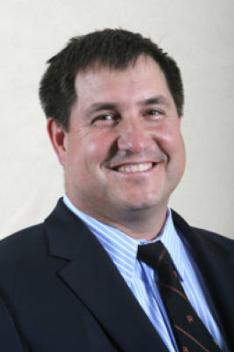Discussion swirled in the football community last week when The New York Times reported that Ivy League football coaches had made a decision to eliminate all full-contact hitting from practices during the regular season. The move would mark a major step in combating heightened concerns about brain trauma and other related injuries in football.
Princeton head coach Bob Surace ’90 clarified that the move to eliminate full-contact hitting from regular season practices has yet to become established as official rule. “This is still a proposal that the Ivy League coaches have passed unanimously,” Surace said. “It will go to next steps with the league administrators and president, and they’ll make a decision before the start of next season.”
While the new rule may sound like a bold move, it would not change much about how Princeton or a number of other Ivy League teams operate their regular season practices, according to Surace. Dartmouth head coach Buddy Teevens told the Times and ESPN’s Outside the Lines that his team eliminated full-contact practices throughout the year in 2010. Surace said that his players do not go full-contact during regular season practices either, but that the passage of the proposal still sets an important precedent for football at the high school and younger levels.
“The discussion point is, ‘Let’s have common sense,’” Surace said. “Hopefully a high school coach out there will look at this rule and say, ‘Hey, they’re right.’ Maybe one-third of them will drop [full-contact hitting from regular season practices] this year. Maybe this will help prevent just 20 concussions this year, and then hundreds next year.”
Above all else, Surace and the move of fellow Ivy coaches stresses the importance they place on the safety of their players above all else.
“Our goal and our job is to minimize risk, especially to the brain. We’re trying to reduce the risk significantly.
“[This proposal is] on player safety, and I truly believe the administrators, coaches, and players of the Ivy League understand the importance of player safety,” Surace said. “I have high confidence that this proposal will be taken with the utmost respect and discussion. We’re trying to do things better than we’ve ever done them before.”
In 2011, the Ivy League presidents approved new football practice rules aimed at curbing concussions. Teams were limited to no more than two full-contact practices per week, significantly lower than the NCAA maximum of five.
Quick Takes
In women’s basketball, Princeton and Penn each swept weekend games against Harvard and Dartmouth to set up a de facto Ivy League championship game in the season finale at Jadwin Gym Tuesday night. The Tigers and Quakers enter the game with identical records — 12-1 in the league, 23-4 overall. Princeton has won 12 in a row since losing to Penn in the Ivy opener at the Palestra in January.
After dropping a 73-71 heartbreaker at Harvard Friday night, men’s basketball bounced back with a 19-point win at Dartmouth to improve to 11-2 in Ivy play. But the split was not enough to keep the Tigers’ championship hopes alive: Yale completed its regular season with a win at Columbia and finished 13-1 in the league, clinching its first trip to the NCAA Tournament since 1962.
Wrestling standout Brett Harner ’17 won the 197-pound title at the EIWA Championships at Jadwin Gym on Sunday, becoming Princeton’s first individual champion since 2003. Harner and classmates Jordan Laster (141 pounds) and Ray O’Donnell (285 pounds) earned bids to the NCAA Championships, and the Tigers placed fifth in the team standings, its best finish in head coach Chris Ayres’ 10 seasons at the helm.

